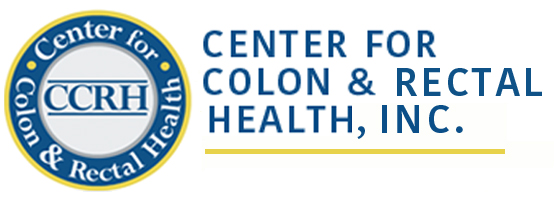An anal fissure is a tear in the lining of the anus, one of the most sensitive areas of the body. The pain, sometimes severe, is often felt during bowel movements and may be excruciating. The pain can last up to several hours and is also associated with rectal bleeding.
At the Center for Colon & Rectal Health, the physicians and medical staff understand the uncomfortable symptoms associated with anal fissures. The best time to schedule an appointment with one of our physicians is immediately after you experience severe pain in your anal area or bleeding after a bowel movement occurs. Passing large or hard stools, constipation, and straining during bowel movements can cause a fissure. Other causes include diarrhea, Crohn’s disease or irritable bowel syndrome. There are other less common causes of anal fissures. A fissure can cause the anal sphincter to go into spasm, which worsens the pain.
During your office visit, your physician will gently evaluate your condition. We will take the time to answer all of your questions providing you with comforting assurance until we are certain you understand your specific condition and how your discomfort will improve with the best course of treatment.
After the tear occurs, often the CCRH physicians will recommend using topical muscle relaxants, stool softeners and warm tub soaks and the fissure usually heals without surgery. The muscle relaxants include compounds like Nitroglycerine and Diltiazem ointments. These are not readily available and will have to be compounded by a specialty pharmacy.
If medical and conservative therapy fails or if a fissure becomes chronic, surgery may be recommended. The surgical option providing the best outcome and relief for your condition will be decided with you. Information about the details of the procedure will be reviewed before any surgery is scheduled.
The surgeons at CCRH are the most highly qualified surgeons in the specialty of colon and rectal health in the region. Your health and wellness are our utmost concern. The most common surgery performed to avoid ongoing anal fissure pain and correct spasm is a procedure involving a small incision in the sphincter to release the muscle, allowing the skin edges to come together and heal. This procedure is the most effective treatment but carries a low risk of patients having trouble holding bowel movements (incontinence). When that risk is too high, Botulinum Toxin (Botox) can be used to relax the muscle, allowing the fissure to heal. The muscles that are affected by Botox injections have new nerve growth fairly rapidly so there are few long-term issues that may result from a permanent incision in the muscle.
More Information
Our goal is to provide you with a safe and comfortable environment. Every patient is different. We strive to offer you the most accurate and effective treatment options.
Please contact Bucks County’s premier colorectal group to schedule an appointment and to learn more.
St. Mary Medical Center
St. Clare Medical Building, Suite 130
1203 Langhorne-Newtown Road
Langhorne, PA 19047
215-741-4910


